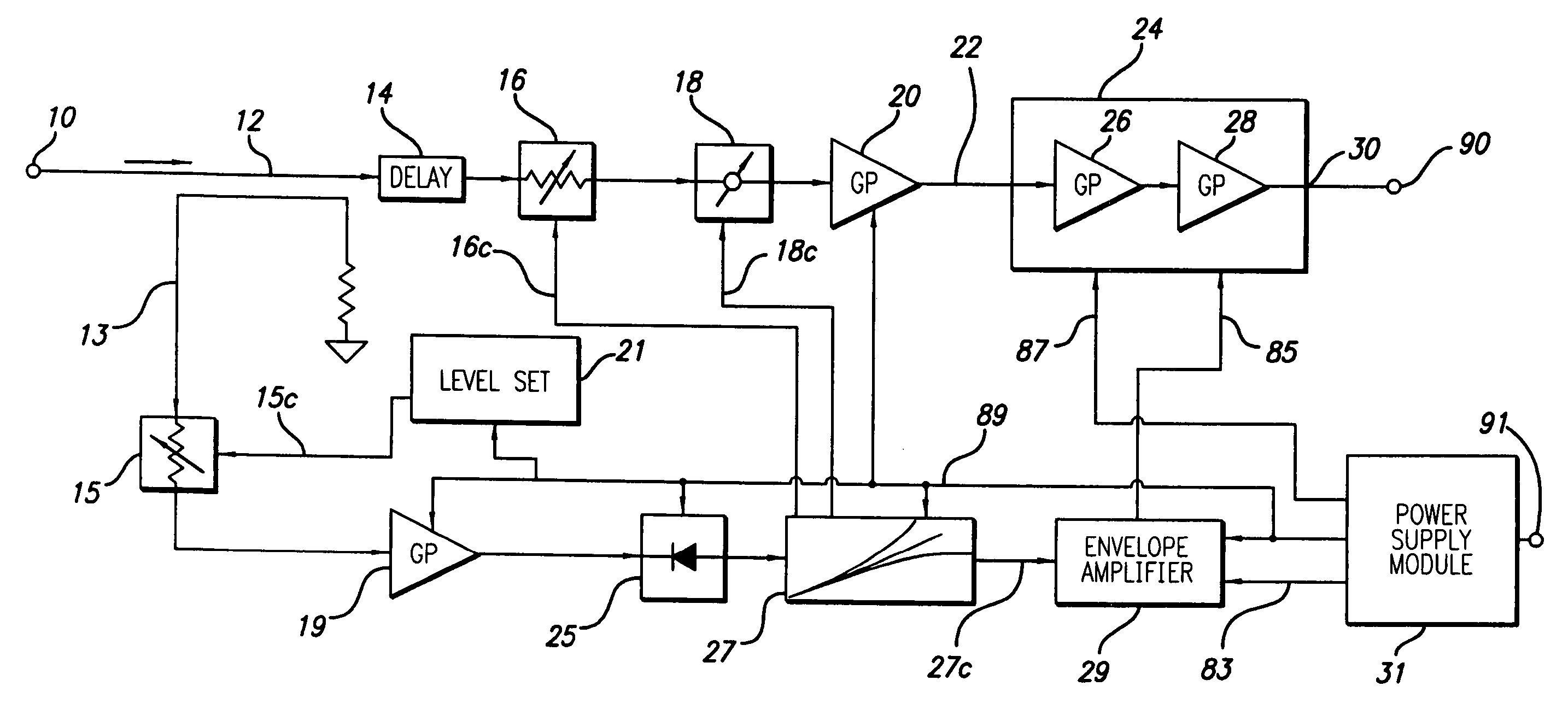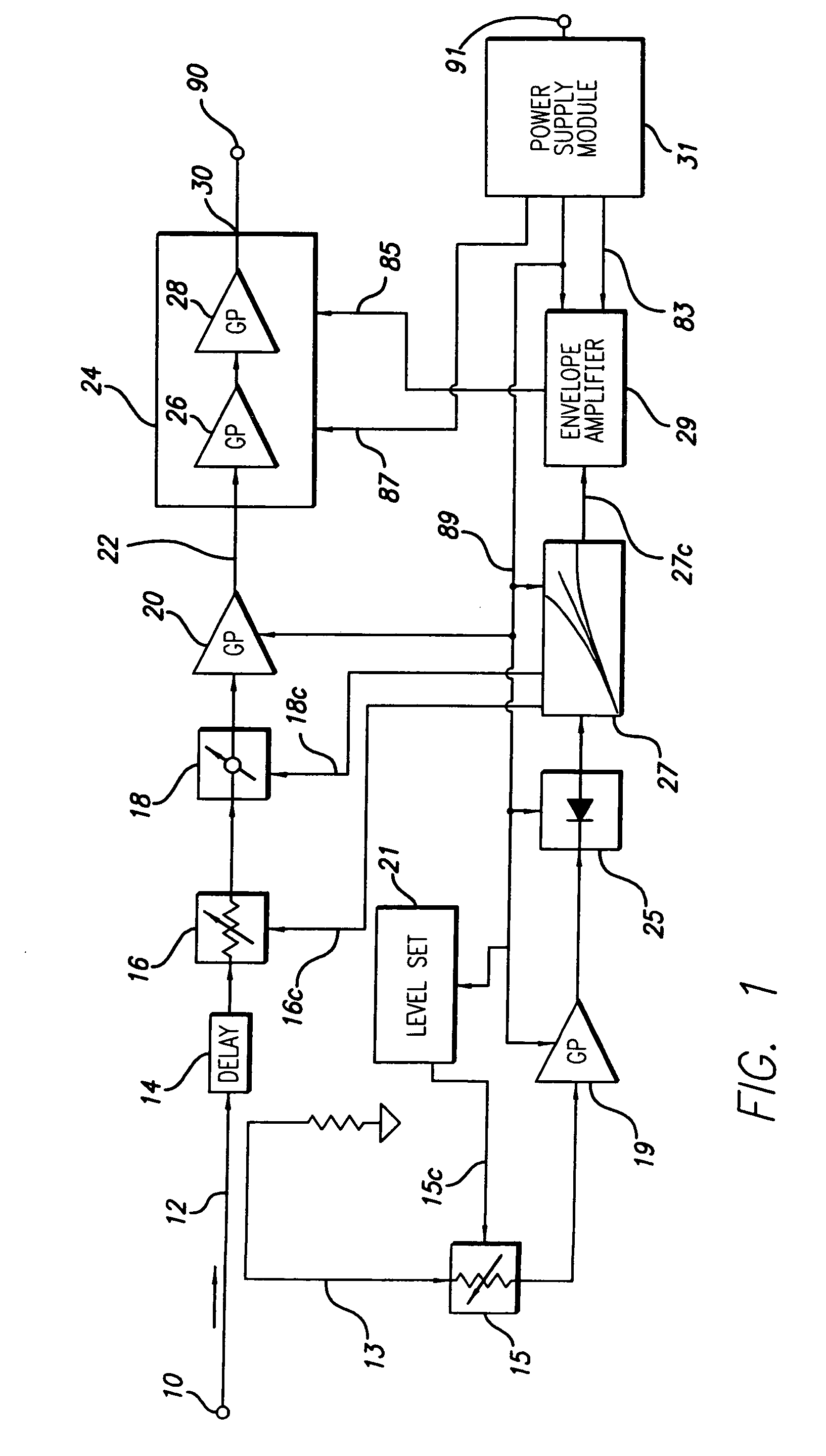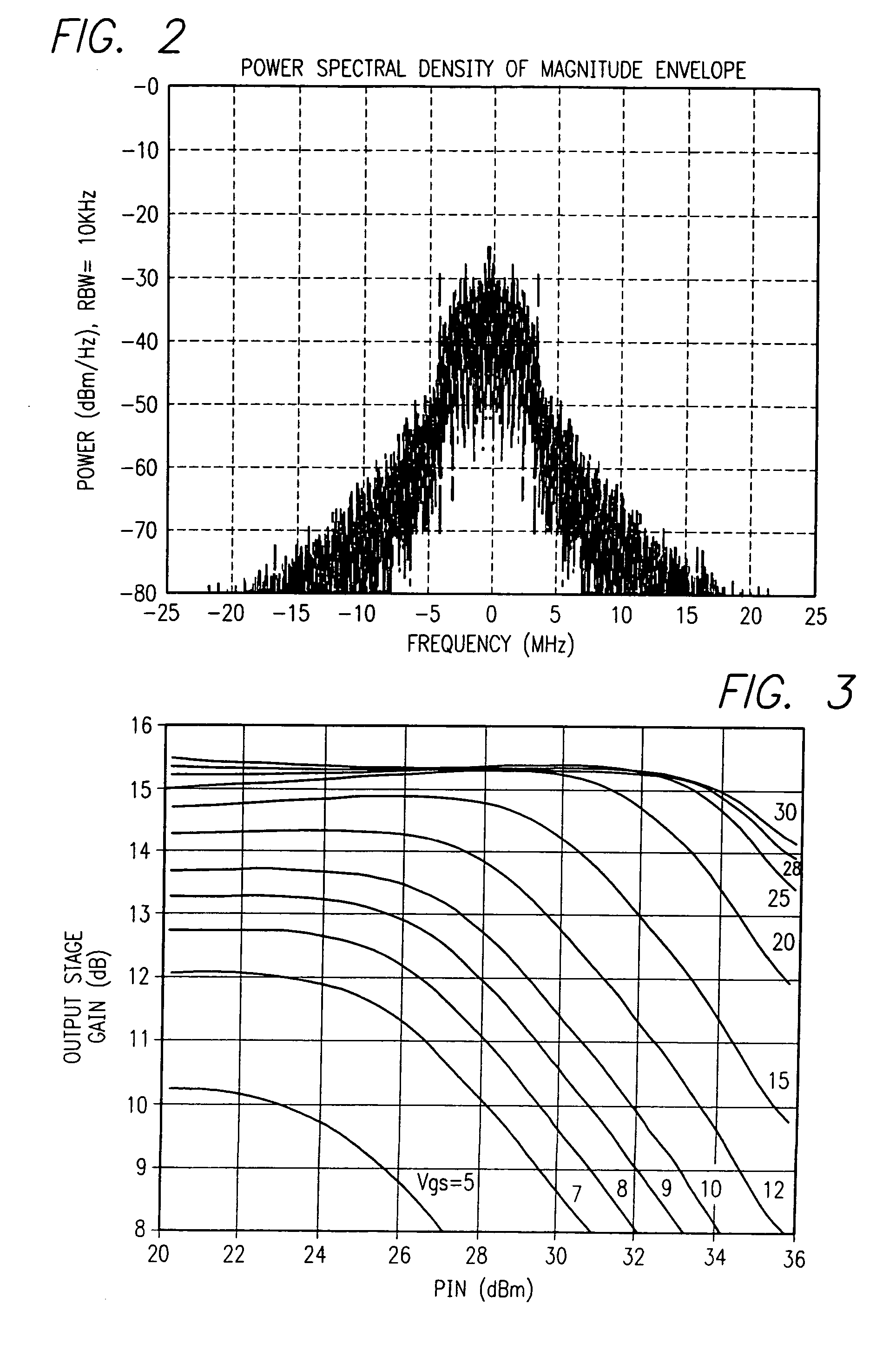Constant gain nonlinear envelope tracking high efficiency linear amplifier
a linear amplifier, nonlinear envelope technology, applied in the direction of gain control, amplifier modification to reduce nonlinear distortion, transmission, etc., can solve the problems of low overall efficiency, large peak excursions in the rf signal carrier, signal requires conventional rf amplifiers that are costly and relatively inefficient, etc., to achieve constant supply voltage and constant gain
- Summary
- Abstract
- Description
- Claims
- Application Information
AI Technical Summary
Benefits of technology
Problems solved by technology
Method used
Image
Examples
Embodiment Construction
[0022] The present invention is directed to improving the linearity and enhancing the efficiency of RF power amplifiers operated with signals having high dynamic range, and, more particularly, to an amplifier operating at microwave frequencies with high peak to average ratio input RF signals.
[0023] First the general principles and method of operation will be described. Intermodulation distortion stems from nonlinear amplitude and phase response characteristics inherent to high power devices when operated near maximum output power levels. The present invention addresses linearity and efficiency requirements by monitoring a detected input envelope waveform, processing it, and controlling supply voltages to power devices and adjusting the phase and amplitude of the incident RF signal so as to achieve the best possible AM-AM and AM-PM response possible, while achieving efficient performance.
[0024] More specifically, the RF input signal is detected by an envelope detector. The instanta...
PUM
 Login to View More
Login to View More Abstract
Description
Claims
Application Information
 Login to View More
Login to View More - R&D
- Intellectual Property
- Life Sciences
- Materials
- Tech Scout
- Unparalleled Data Quality
- Higher Quality Content
- 60% Fewer Hallucinations
Browse by: Latest US Patents, China's latest patents, Technical Efficacy Thesaurus, Application Domain, Technology Topic, Popular Technical Reports.
© 2025 PatSnap. All rights reserved.Legal|Privacy policy|Modern Slavery Act Transparency Statement|Sitemap|About US| Contact US: help@patsnap.com



